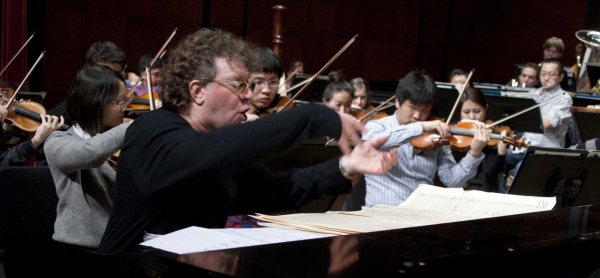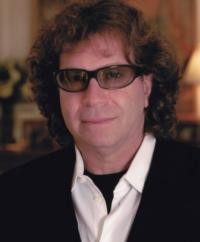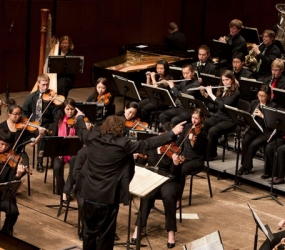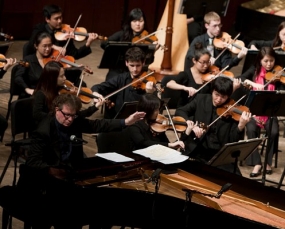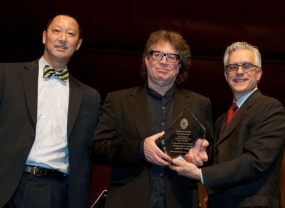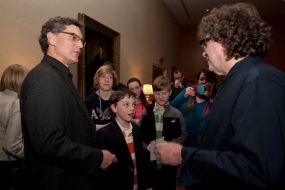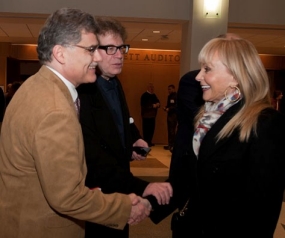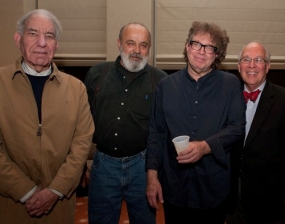Randy Edelman takes the audience to the movies — his movies
by Deborah Rieselman, 1-13
The passion with which alumnus Randy Edelman conducted the student musicians in playing his own film-score compositions was electrifying and contagious, bringing the Corbett Auditorium audience to its feet several times for standing ovations. The renowned composer's facial expressions and demonstrative conducting style indicated he was thrilled to be sharing his musical magnetism with both the College-Conservatory of Music students and the audience, as well as touched when he received the Kautz Alumni Master's award on Jan. 27, 2013.
Consequently, his nonchalant remark afterward, "It was just like any other concert," took me by surprise. I had asked how he felt conducting the Philharmonia Orchestra and Jazz Ensemble at his alma mater, and when I heard his reply, it was all I could do to keep my mouth from falling open.
While I was still trying to feign composure, his wife, Jackie DeShannon (a famous singer-songwriter in her own right), jumped right in — excitedly countering, "That's not what I just told her. I said you were loving every minute of it. I said you had been telling me about how good the students were since we got here."
He interrupted her. "It was just like any other concert for me. That means it was no different than being at Abbey Road, conducting the London Symphony," he quietly stated, as if that connotation should have been obvious. "They are that good."
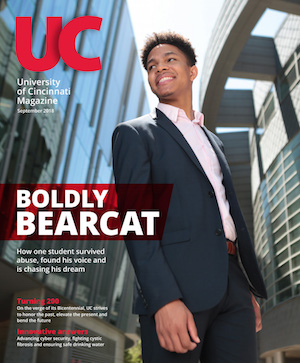
 Past Issues
Past Issues